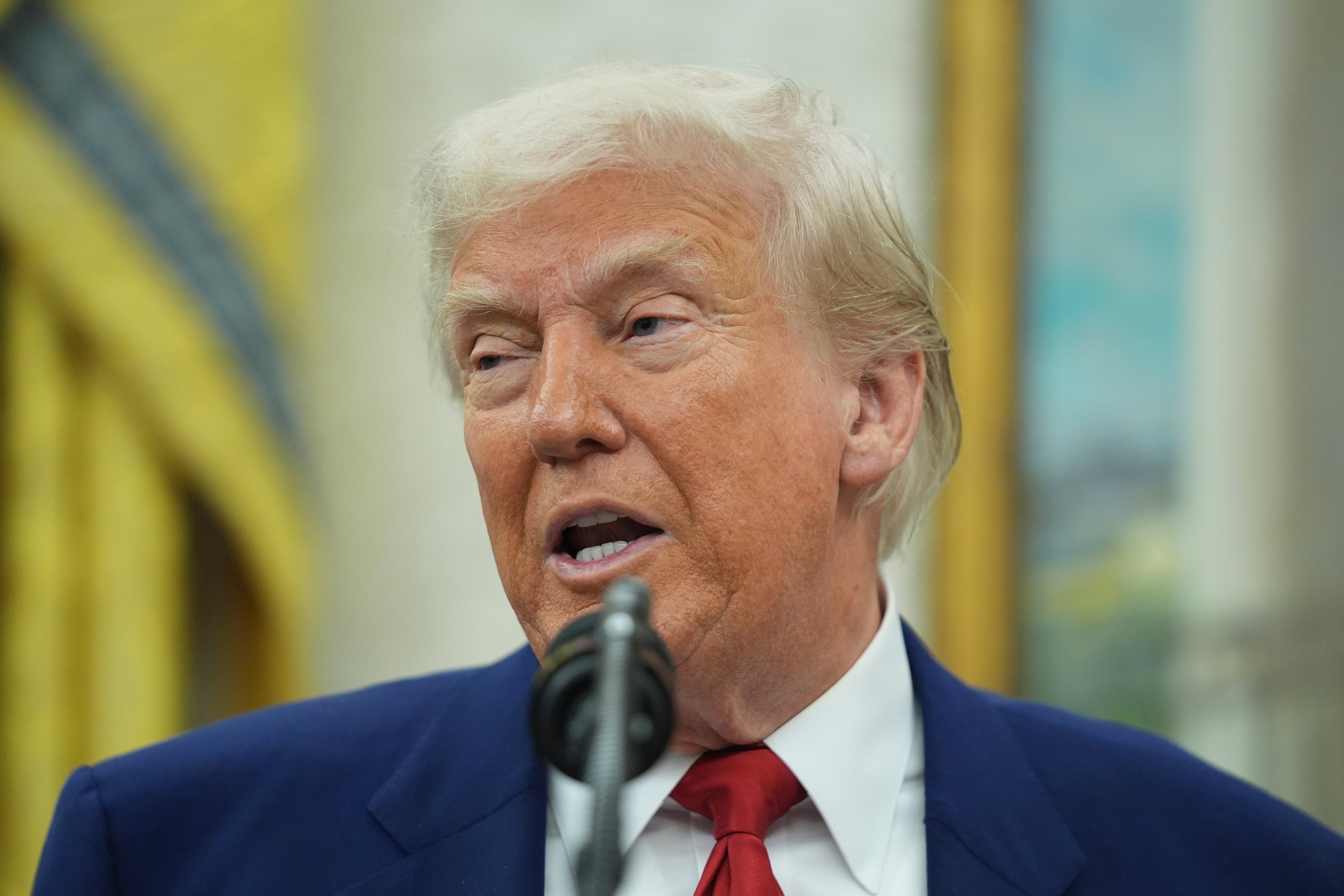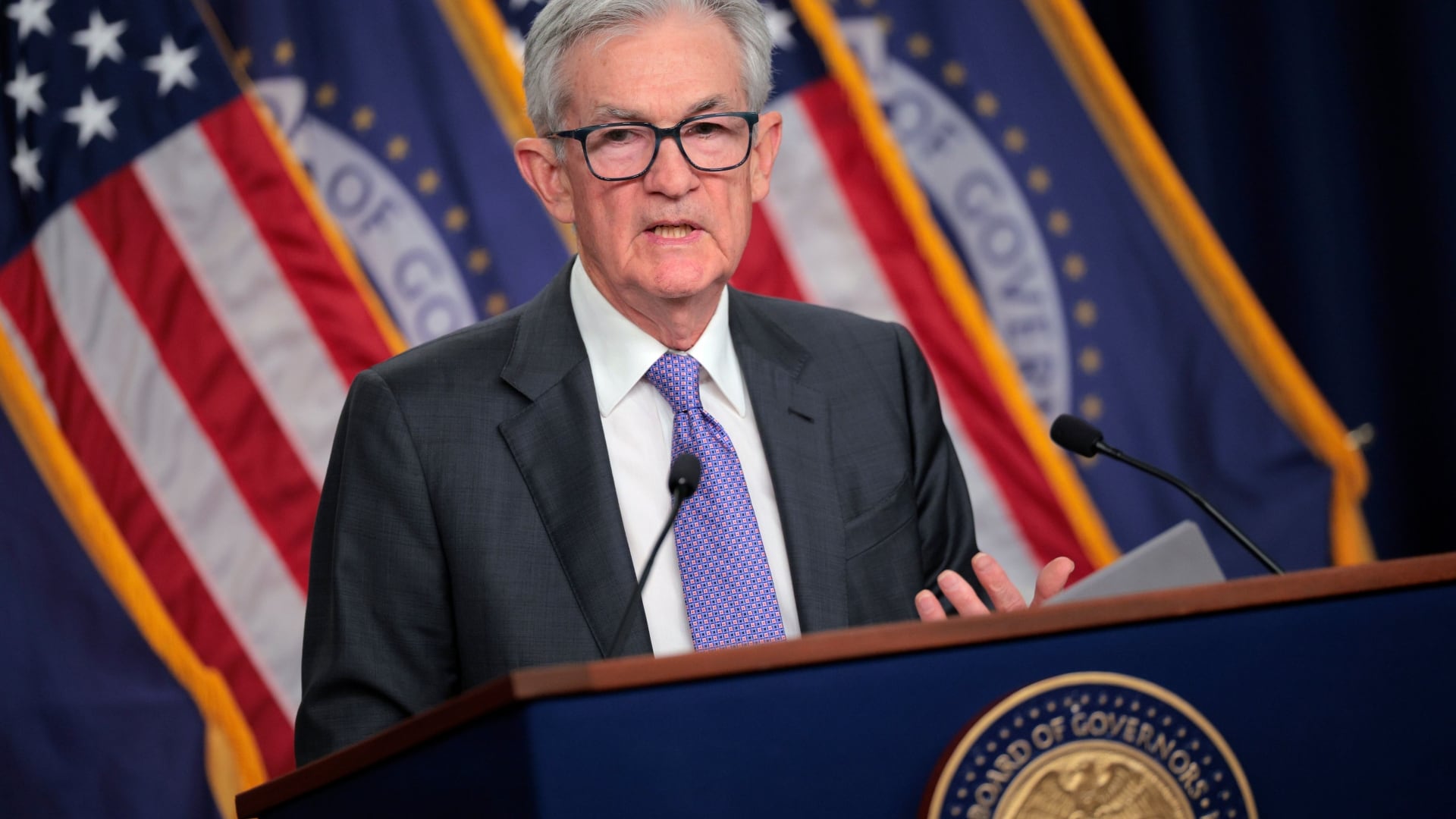WASHINGTON (AP) — President Donald Trump wants the world to know he’s no “chicken” just because he’s repeatedly backed off high tariff threats.
The U.S. Republican president’s tendency to levy extremely high import taxes and then retreat has created what’s known as the “TACO” trade, an acronym coined by The Financial Times’ Robert Armstrong that stands for “Trump Always Chickens Out.” Markets generally sell off when Trump makes his tariff threats and then recover after he backs down.
Trump was visibly offended when asked about the phrase Wednesday and rejected the idea that he’s “chickening out,” saying that the reporter’s inquiry was “nasty.”
“You call that chickening out?” Trump said. “It’s called negotiation,” adding that he sets a “ridiculous high number and I go down a little bit, you know, a little bit” until the figure is more reasonable.
Trump defended his approach of jacking up tariff rates to 145% on Chinese goods, only to pull back to 30% for 90 days of negotiations. He similarly last week threatened to impose a 50% tax on goods from the European Union starting in June, only to delay the tariff hike until July 9 so that negotiations can occur while the baseline 10% tariff continues to be charged. Similar dramas have played out over autos, electronics and the universal tariffs that Trump announced on April 2 that were based in part on individual trade deficits with other countries.
In each case, Trump generally took the stock market on a roller coaster. Investors sold-off when the tariff threats were announced as they implied slower economic growth and higher prices, which would hurt companies’ profits. Stocks then rebounded after Trump stepped back.
As of Wednesday afternoon, the S&P 500 stock index was up slightly so far this year. But the index was down as much as 15% on the year on April 8, a reflection of the volatility that Trump’s changing policies have created.
He said that approach has led to $14 trillion in new investment in the U.S., a figure that appears to be artificially high and has not been fully verified by economic data.
“Don’t ever say what you said,” Trump said with regard to the notion of him chickening out. “To me, that’s the nastiest question.”
Trump said that EU officials would not be negotiating if not for his 50% tariff, saying he usually has the opposite problem of being “too tough.”
The New York Times and President Donald Trump are fighting again. The news outlet said Wednesday it won't be deterred by Trump's “false and inflammatory language” from writing about the 79-year-old president's health. The Times has done a handful of stories on that topic recently, including an opinion column that said Trump is “starting to give President Joe Biden vibes.” In a Truth Social post, Trump said it might be treasonous for outlets like the Times to do “FAKE” reports about his health and "we should do something about it.” The Republican president already has a pending lawsuit against the newspaper for its past reports on his finances.
President Donald Trump says he will allow Nvidia to sell its H200 computer chip used in the development of artificial intelligence to “approved customers” in China. Trump said Monday on his social media site that he had informed China’s leader Xi Jinping and “President Xi responded positively!” There had been concerns about allowing advanced computer chips into China as it could help them to compete against the U.S. in building out AI capabilities. But there has also been a desire to develop the AI ecosystem with American companies such as chipmaker Nvidia.
House Republicans in key battleground districts are working to contain the political fallout expected when thousands of their constituents face higher bills for health insurance coverage obtained through the Affordable Care Act. For a critical sliver of the GOP majority, the impending expiration of the enhanced premium tax credits after Dec. 31 could be a major political liability as they potentially face midterm headwinds in a 2026 election critical to President Donald Trump’s agenda. For Democrats, the party’s strategy for capturing the House majority revolves around pinning higher bills for groceries, health insurance and utilities on Republicans.
President Donald Trump says a deal struck by Netflix last week to buy Warner Bros. Discovery “could be a problem” because of the size of the combined market share. The Republican president says he will be involved in the decision about whether federal regulators should approve the deal. Trump commented Sunday when he was asked about the deal as he walked the red carpet at the Kennedy Center Honors. The $72 billion deal would bring together two of the biggest players in television and film and potentially reshape the entertainment industry.
The two-sentence footnote raised serious concerns about accuracy and credibility.
Real estate software company RealPage has agreed to stop sharing nonpublic information between landlords as part of a settlement with the Department of Justice.









